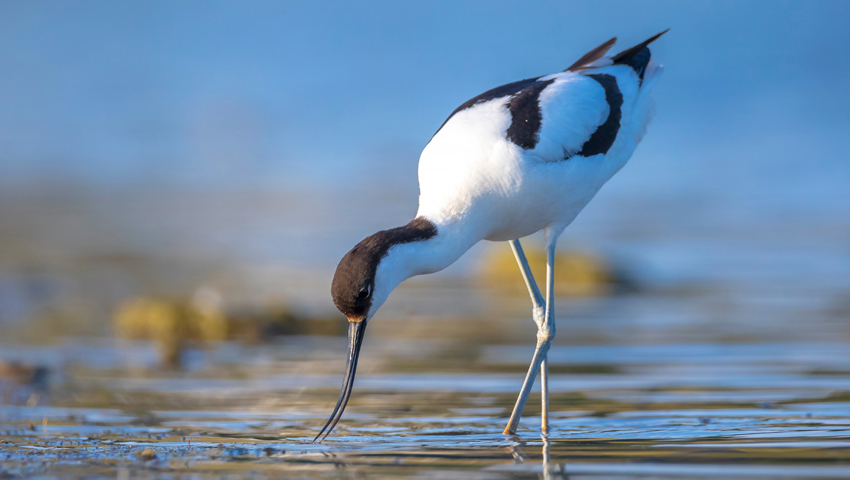Thousands of new homes for development are to be enabled in Dorset thanks to the government backed Nutrient Mitigation Scheme, Natural England has announced.
The scheme will enable around 3,700 new homes to be built in the River Piddle catchment over the next few years whilst protecting water quality.
By securing nutrient mitigation at Lyscombe, the scheme will enable new homes to be built whilst protecting numerous rare birds such as avocets, spoonbills and black-tailed godwits from additional pollution that affects their precious habitat within Poole Harbour.
Natural England will offer credits for sale to developers through its Nutrient Mitigation Scheme in the coming months.
With nature in decline and wildlife under so much pressure, NE says that it has had to think strategically about how to deliver nutrient solutions.
A Natural England spokesperson said, “Lyscombe Farm is an example of big picture thinking. The change in land use will provide nutrient credits for homes, improve water quality to protect Poole Harbour, but also create a new wildlife rich, high nature value habitat, and enhance the existing area of SSSI and priority habitats found on the farm.
“The land will be managed for nature conservation and environmental restoration using natural regeneration and nature restoration techniques such as grazing animals. Our joint ambition is for Lyscombe Farm to become a wildlife rich National Nature Reserve embedded into the rural farmed landscape.
“Lyscombe Farm will act as a hub, improving the quality of the protected site (Lyscombe and Highdon SSSI) and connecting vital habitats together, which in turn will support wildlife across the wider landscape. Alongside these benefits, it will provide space for people to reconnect with nature and experience the wonders of this stunning landscape.”
Lyscombe Farm is strategically important for water quality and nature recovery. The source of the Little Piddle, a tributary of the River Piddle, rises at Lyscombe, presenting the opportunity to restore the river and valley bottom for wildlife, and reduce the amount of harmful nutrient pollution entering waterways and reaching Poole Harbour.
Marian Spain, Chief Executive of Natural England, said, “The purchase of Lyscombe is a significant step forward for nutrient mitigation and a boost for sustainable development. Providing nutrient credits through work at sites like these will ensure that we can keep building homes for the future, without harming our waterways.
“This demonstrates how nature recovery and sustainable development can be delivered hand in hand. It is impressive to think of all of the benefits that will be realised here, for nature and people, and how projects like this happen when we work in partnership and use a combination of tools and funds for the greatest outcome.”
The purchase of 833 acres of chalk downland and farmland at Lyscombe Farm was made possible through Natural England’s Nutrient Mitigation Scheme and Natural England’s National Nature Reserves funding, alongside donations from Dorset Wildlife Trust supporters.
The partnership between Natural England and Dorset Wildlife Trust at Lyscombe Farm will also provide space for significant nature recovery. The long-term ambition for Lyscombe is to create a wildlife rich, open-access National Nature Reserve, for people to enjoy.
Brian Bleese, chief executive at Dorset Wildlife Trust said, “The acquisition of Lyscombe is an excellent example of a blended finance initiative, bringing together statutory, charitable and private funding to deliver benefits for nature, people and sustainable development. Making space for nature and people is vital in addressing climate change and the ecological crises, projects like Lyscombe ensure that development also contributes to environmental improvements.”
